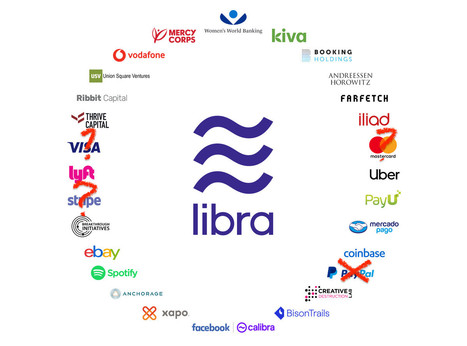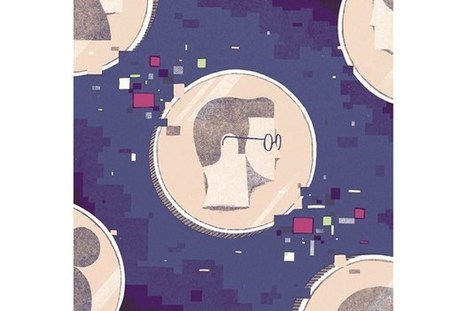PayPal is withdrawing from Facebook’s Libra Association, the company announced Friday.
“PayPal has made the decision to forgo further participation in the Libra Association at this time and to continue to focus on advancing our existing mission and business priorities as we strive to democratize access to financial services for underserved populations,” PayPal said in a statement.
David Marcus, who leads the project at Facebook, was previously the president of PayPal. PayPal said it is still “supportive of Libra’s aspirations” and that it will continue to partner with Facebook in the future.
Dante Disparte, head of policy and communications for the Libra Association, said in an emailed statement, “We recognize that change is hard, and that each organization that started this journey will have to make its own assessment of risks and rewards of being committed to seeing through the change that Libra promises.”
Libra was greeted with widespread criticism after the cryptocurrency was announced in June. Facebook’s involvement caught the attention of senior congressional finance committee members, global regulators, former lawmakers and industry insiders who questioned Facebook’s motives.
Federal Reserve Chairman Jerome Powell said this summer that libra raises “serious concerns regarding privacy, money laundering, consumer protection, financial stability” and the Fed had launched a working group to examine it.
Rep. Maxine Waters, D-Calif., chairwoman of the House Financial Services Committee, told CNBC in June that “it’s very important for them to stop right now what they’re doing so that we can get a handle on this” and Congress would “move aggressively” to deal with it.
Facebook has tried to mitigate lawmakers’ fears of libra in part by assuring them that Facebook would not have unilateral control of the currency.
The Libra Association had been made up of 28 corporate backers, including Facebook, who are meant to help govern libra. All founding members were expected to invest a minimum of $10 million to fund the operating costs of the association and launch an incentive program to drive adoption, according to Facebook’s initial announcement of the project, but those investments had not yet been made.
PayPal’s public defection could indicate the alliance is starting to fray.
On Wednesday, The Wall Street Journal reported that Visa, Mastercard and other financial partners that signed on are “reconsidering” involvement following a backlash from government officials.
Rep. Sylvia Garcia, D-Tex., a member of the House Financial Services Committee, said on a call with reporters Friday that PayPal’s decision to back out is “a clear indication that something’s amiss.” Garcia said she already had concerns about the members of the association, since Facebook seemed to be able to select its founding members.
“If I’m doing the inviting, then that’s controlling the entire agenda,” she said.
Lawmakers in the House Financial Services Committee are now seeking to bring Facebook’s top executives back to Capitol Hill to testify on libra, CNBC reported Friday. Two sources familiar with the situation told CNBC that the committee has been in talks with Facebook about bringing COO Sheryl Sandberg to testify this month, but that the hearing would be contingent on CEO Mark Zuckerberg’s agreement to appear before the committee.



 Your new post is loading...
Your new post is loading...










Anyone next ?